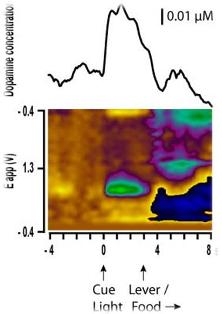Addiction


Drug addiction is a brain disease that is a pervasive problem in modern society, which is characterized by a loss of control over learned drug-seeking behavior. To qualify for the diagnosis according to the DSM-4 criteria for substance dependence, patients must show evidence of an inability to control their drug seeking behavior despite adverse consequences. This loss of behavioral control reflects both acute rewarding effects of drugs as well as longer-lasting changes in neurophysiological, molecular and structural markers of function in a diverse set of brain areas that occur with chronic use. These changes, combined with genetic or societal predisposing factors, are thought to be somehow responsible for the addicts' inability to abstain from drug use. Yet many of these changes differ according to what drug is delivered, whether drugs are self-administered or administered non-contingently, whether they are received acutely or chronically, and whether that access is for short versus long duration. As a result, it remains unclear which if any of these changes are critical to the addictive phenotype.
Researchers at the University of Maryland School of Medicine are engaged at a variety of levels, working to define those critical changes, their etiology, and ways in which they can be corrected. This work includes research in animal models and humans. Techniques include behavioral, neurophysiological, genetic and molecular approaches. Disease models include drugs as diverse as cocaine and amphetamine, nicotine, and alcohol. Research is also concerned with identifying the underlying cause of the high comorbidity between substance abuse disorders and other neuropsychiatric diseases, such as depression and schizophrenia.















